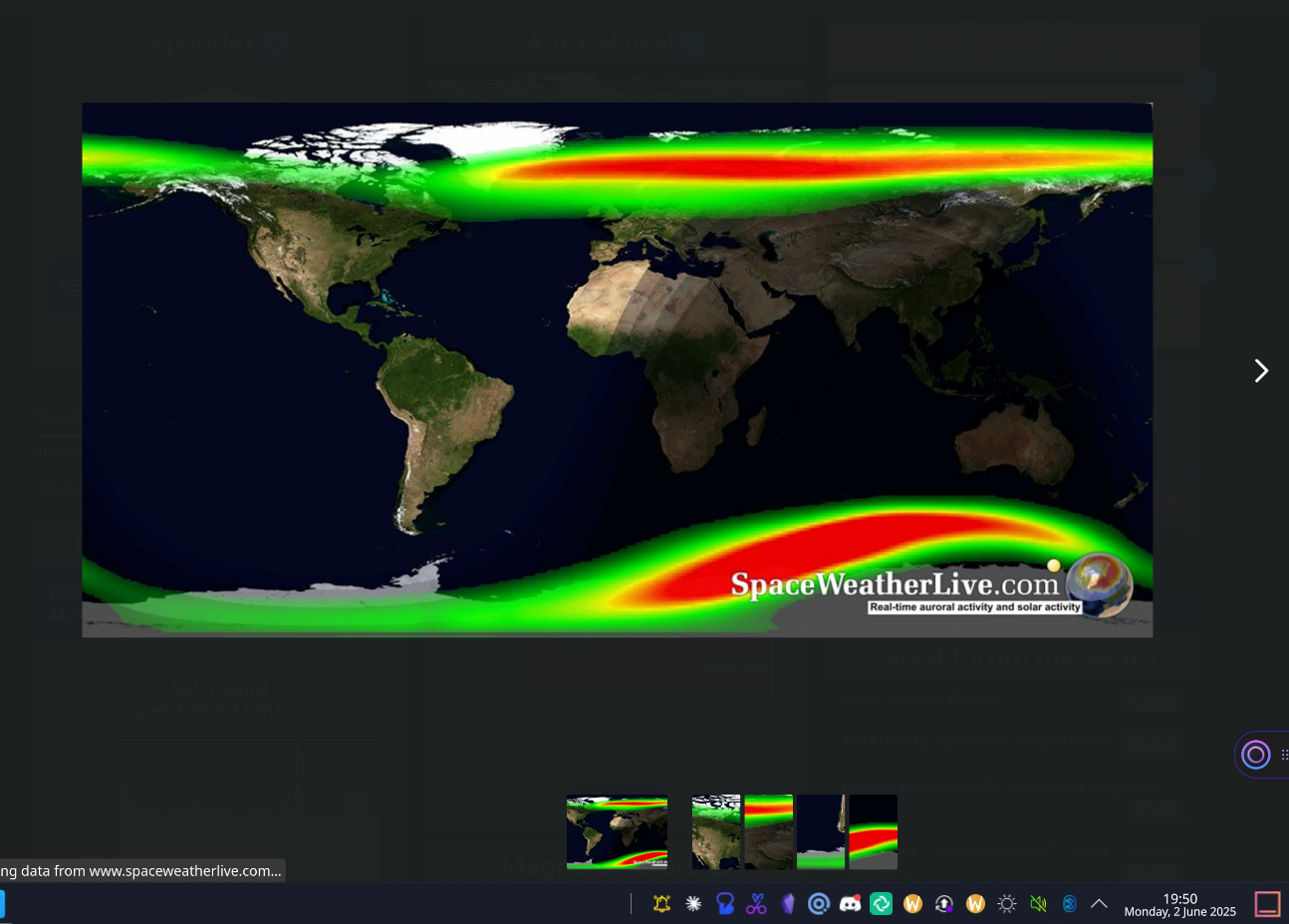7
you are viewing a single comment's thread
view the rest of the comments
view the rest of the comments
this post was submitted on 01 Jun 2025
7 points (100.0% liked)
Space Weather
68 readers
8 users here now
Welcome to Space Weather
Space weather is a branch of space physics and aeronomy, or heliophysics, concerned with the varying conditions within the Solar System and its heliosphere. This includes the effects of the solar wind, especially on the Earth's magnetosphere, ionosphere, thermosphere, and exosphere. Though physically distinct, space weather is analogous to the terrestrial weather of Earth's atmosphere (troposphere and stratosphere). The term "space weather" was first used in the 1950s and popularized in the 1990s. Later, it prompted research into "space climate", the large-scale and long-term patterns of space weather.
Rules
- Don't throw mud. Be kind and remember the human.
- Keep it rooted (on topic).
- No spam.
Resources
founded 2 months ago
MODERATORS
The joy of aurora hunting:
Stay up until 3:30 the other night. When it exploded again it gave a giant middle finger to Europe:
Noonish the next day:
And into the eve:
But lo, the density died and the pillars are diffused. My friend caught a little bit on the horizon in camera. I saw a little bit of red but nothing stunning. Very faint. You can just see the pink on the horizon. This is facing north.
Aahh, that's rough 😅
Nice! Is this your first time seeing it, or is this something that you get to attempt often?
Oct 10, 2024, just after midnight right above our little town!
Wow, that is spectacular!
Nah, I am always checking in, especially considering we are arount the Solar Maximum. I believe that the best shows come as it winds down iirc. I am in southern England, and we get it's hazy glow more often than people realise. :) I have caught a good show here before, though. I'll dig up pics from last year in a bit. I get alerts so I am always waiting for it.
Solar Maximum happens every 11 years or so, right? I will keep paying attention!
Yes, that is correct. It is likely to be slow until Fall, but there is always hope.
https://mander.xyz/post/31327758 <- Check out the tracker here. Solar Maximums are only determined after they happen.